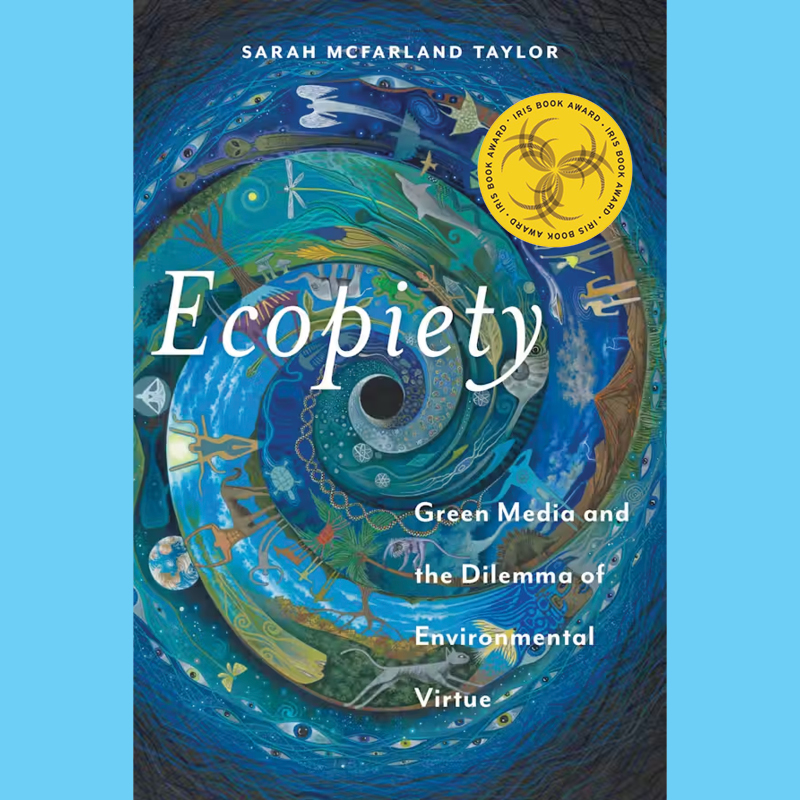May 10, 2024 – for immediate release
Bloomington, Indiana & Santa Barbara, California
The Center for Religion and the Human at IU Bloomington announces Sarah McFarland Taylor’s Ecopiety: Green Media and the Dilemma of Environmental Virtue (NYU Press 2019) as winner of the fourth annual Iris Book Award. McFarland Taylor is Associate Professor of Religious Studies at Northwestern University where she specializes in the intersections of media, religion, culture, consumerism, climate change, conservation, and environment.
The Iris Book Award is an annual $2000 prize honoring outstanding work that gives new insight into the meaning and status of the human in relation to science, religion, and nature. Books considered for the award are nominated by academic and popular presses, and by scholars working in areas related to science, nature, religion, and technology. The award is one of several initiatives supported by an initial $1M grant from the Henry Luce Foundation for the “Being Human” project.
Former IU faculty member Lisa Sideris, now Professor and Vice Chair of Environmental Studies at the University of California Santa Barbara, directs the Iris Book Award. Sideris called this year’s winner a model work of interdisciplinary scholarship that shows “how a widespread preoccupation with what McFarland Taylor calls ecopiety—a focus on individual environmental virtues and vices—has misled many of us to believe we can tackle the environmental crisis through quotidian actions like purchasing green products and recycling. Her work is critical for understanding and recovering human agency in the face of enormous planetary challenges.”

McFarland Taylor said she wrote the book as a reality check:
Amidst the pervasive “green consumption” and individual microchange narratives that now saturate our hypermediated lives, the reality is that we are not doing enough collectively, structurally, and at scale to address climate change. Though real strides are being made and there is reason for evidence-based hope, especially in energy transition, our production of greenhouse-gas emissions is still increasing. A marketing emphasis on personal consumer ecopiety as sufficient to the challenge has depoliticized environmental action to our detriment. But we can change this. Creative, innovative, and compelling media storytelling is our most powerful tool to spark and sustain collective public moral engagement in climate action at the speed, scope, and scale needed for substantive global impact.
Jurors for the award praised McFarland Taylor’s humor and insight. They described her writing as provocative and witty, accessible to scholarly audiences and undergraduate students alike.
The prize ceremony, hosted by UC Santa Barbara, will take place in Fall 2024.